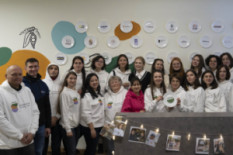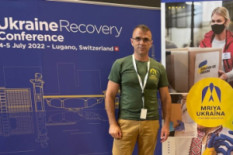Switzerland is a country that can be called an ecological laboratory of the world, where new opportunities are being created to improve the state of the environment on a global level. In Ukraine, on the other hand, it is important to start searching for solutions to restore ecosystems that are suffering and will suffer from the conflict.
Support from Swiss scientists is crucial for us. That's why we decided to talk to Jean-François Rubin, a professor from Switzerland who has been conducting research on aquatic ecosystems and their inhabitants for a long time and is actively seeking solutions to restore them. Jean-François has provided consultancy to post-war governments in the countries of former Yugoslavia on water resource ecology. Currently, he is analyzing projects to assist Ukrainian ecologists.
Jean-François is also the founder of La Maison de la Rivière (The House of the River) museum and foundation - an incredibly fascinating eco-space and beautiful location on the lakeside, near Lausanne in Tolochenaz. We are launching a series of materials on ecosystem preservation with this conversation.
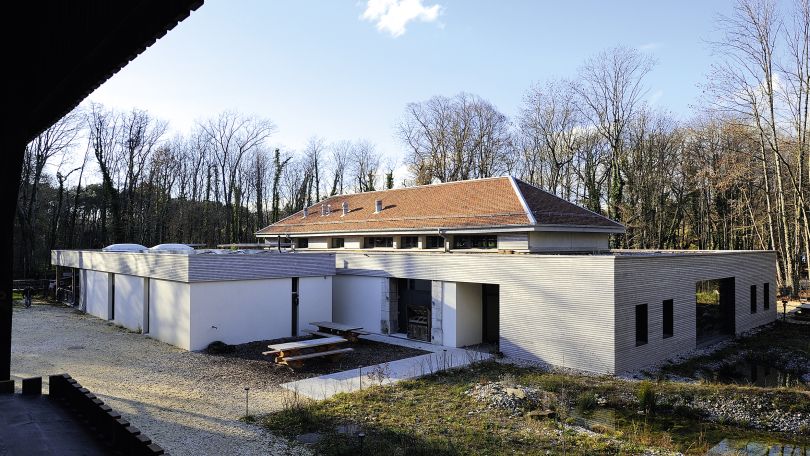
Jean-François, you are the co-founder and the main ideologist of La Maison de la Rivière - a delightful and unique place filled with energy and life. How did the idea for its creation come about?
For a long time, I have been fascinated by the ecosystems of rivers, lakes, streams, and the fish that inhabit them. It all began during my childhood when I developed a passion for fishing. Over the years, I had the privilege of working on various rivers and lakes. One particular encounter stands out in my memory - meeting Jacques Picard, a Swiss scientist studying the Challenger Deep, the deepest part of the world's ocean. This experience further ignited my curiosity and prompted me to write a dissertation on a new species of deep-water fish found in Lake Geneva, which required extensive research. Later, during my time in Sweden studying trout, I had a breakthrough in understanding my profession. Instead of solely relying on academic teachings, I learned invaluable lessons from experienced fishermen who had honed their skills over generations. They taught me the art of working with currents to allow fish to follow their natural paths. Returning to Switzerland, I was determined to apply this ecological research approach in my work here as well.
We were fortunate to come across a military building that had been converted into a museum of ancient weapons, including cannons. We requested permission to transport the weapons and utilize the space to create La Maison de la Rivière. In this place, we wanted to focus our efforts on finding solutions for the preservation of rivers, lakes, and fish. This marked the beginning of a 30-year journey that continues to this day. It is remarkable to think that I was one of the founding members, and now I grow older each year alongside La Maison de la Rivière. It is incredibly satisfying to see how our dream of having just one or two employees has blossomed into a much larger team, now consisting of 30 individuals. Among them are many young people who are dedicated to assisting nature with unwavering commitment.
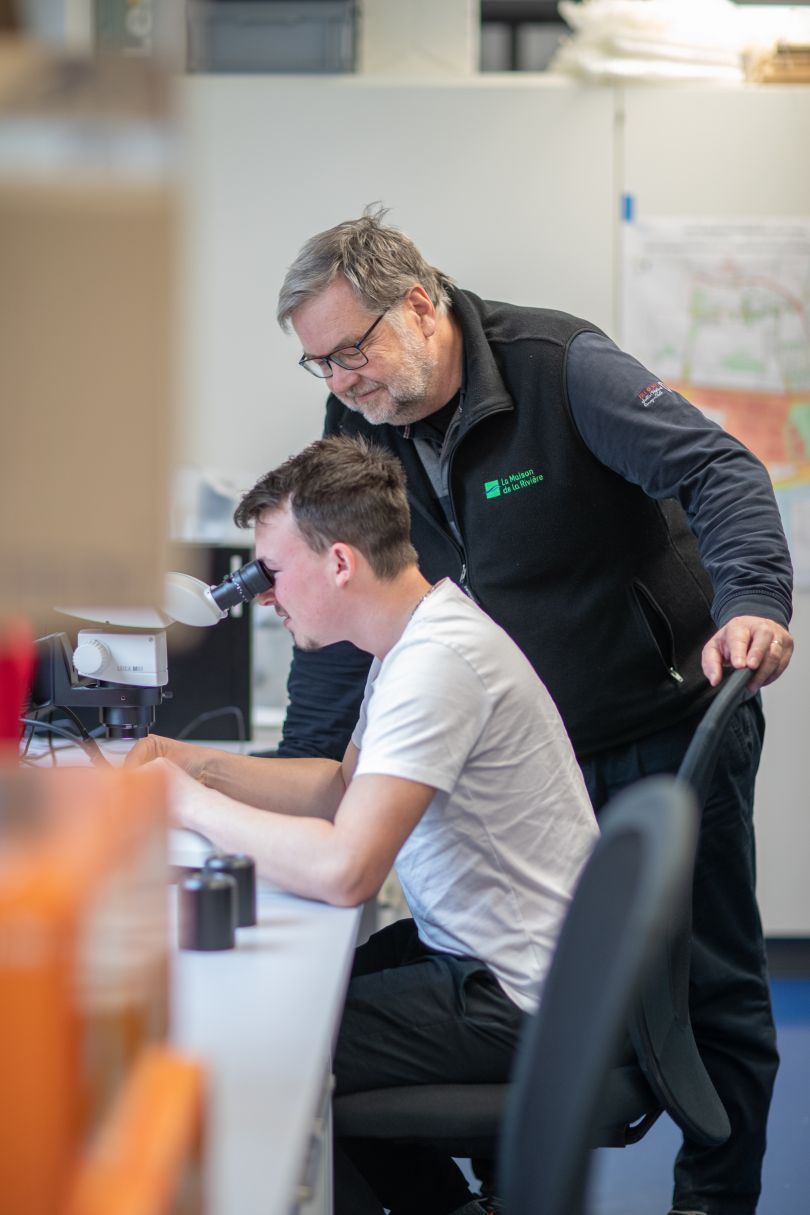
What is the main focus of your team now?
We focus on three main areas: fish and waterbody research, restoration of aquatic environments, and environmental education. Specifically, we offer courses for children, youth, and seniors, and we are responsible for natural resource management in Switzerland. We also organize birthday parties and other events at our House of the River, allowing people to interact with nature in a fun and educational way. Lastly, our goal is to showcase the intertwined nature and culture of the region, emphasizing that one cannot be discussed without the other.
Yes, it is indeed a unique story. You are a professor, but apart from having a successful career as a scientist, you have also realized a socially important educational project that helps people of all ages to understand themselves as part of nature.
You mentioned that you studied trout. Why is caring for them important for the entire ecosystem?
There are many different species of animals that we work with, and some of them may be more popular than others. Personally, I love all animals, especially fish, and I don't believe that one species is more noble than another. Trout is often referred to as a noble fish, but I don't believe it is more noble than, let's say, carp. However, for anglers and the wider public, the salmon family is of great importance as it is a popular fishing target. However, the most important thing is the awareness that the prosperity of any fish species requires a clean environment with sufficient oxygen levels to provide optimal conditions for their population. When we create such an environment, for example, for trout, it benefits not only them but also many other fish species.
It is fascinating how we can apply the knowledge gained from studying trout to other fish species. What's even better is that our research is not just for the sake of research or publication in scientific journals. We focus on applied research, which means we apply what we learn to real-life situations and achieve tangible changes. For example, when we started this work 20-30 years ago, many believed that the only way to stop the decline in fish populations was through breeding them in specialized fish farms and then stocking them in water bodies.
While this approach can be effective at times, it is not a sustainable long-term solution. If the process of stocking water bodies is stopped, the population sharply decreases and eventually declines. By focusing on improving the surrounding environment now, we can ensure a long-lasting effect that will impact several future generations of fish.
However, this approach is more complex than simply releasing fish into the water. Firstly, we need to address water quality issues, which involve interacting with industrial enterprises, farmers, and anyone who uses water for their purposes. Although we understand their needs, using water resources in such a way is not suitable for fish. These discussions are quite challenging as they involve not only ecological factors but also economic and social aspects. As mediators, we need to spend a long time convincing people to support our ideas and motivating them to work towards a common goal.
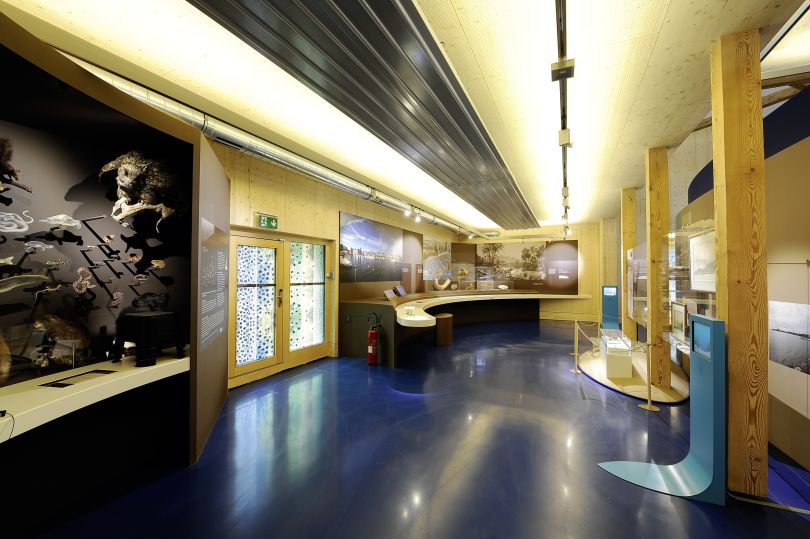
What are the environmental management challenges Switzerland faces due to global warming?
The issue of environmental management is becoming increasingly complex due to global warming. It is forecasted that the amount of available water in Switzerland will not change, but its distribution and characteristics will. Currently, rainfall is evenly distributed throughout the year, but in the future, there will be periods of heavy rainfall alternating with periods of drought, especially in the summer. This will make managing water resources a much more complex process, as conflicts will arise when farmers need water during the summer, precisely when we will not be able to provide it in sufficient quantities. Therefore, we need to focus on the issue of global warming and propose various strategies to minimize temperature increases.
Switzerland may be a small country, and some may doubt our ability to have a global impact, but that is not a reason for us to ignore the problem. There are many specific actions we can take to make a difference, even on a smaller scale.
For example, we can plant trees along riverbanks to provide shade. This reduces the amount of heat absorbed by the water, benefiting the ecosystem. Additionally, these trees create a habitat for birds and animals and have aesthetic benefits for people. While such actions may seem small, over time they can have a significant impact.
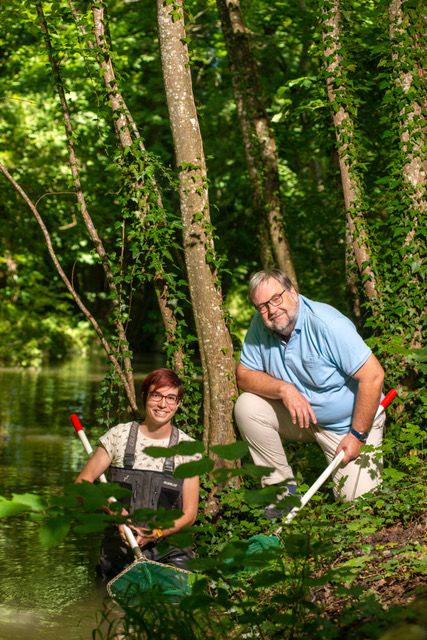
We have discussed the situation in Ukraine. During times of war, the priority is, of course, to save lives and protect our land. However, we are all connected through water, air, and animal migration, and all of these factors know no borders. Therefore, the consequences of war have a global impact on the ecological sphere. You have experience advising the government of Slovenia in post-war times and other countries on water resource policies.
What expert knowledge from Switzerland can be implemented in Ukraine?
To take care of the health of a stream or river, we must look beyond its boundaries and consider the entire territory where water droplets fall, eventually making their way into the water bodies. We sincerely stand with the people of Ukraine and understand the seriousness of the problems your country is facing. It is a complex situation, and we deeply regret that all of this is happening.
I believe that Switzerland and Ukraine can work together to address environmental challenges. Of course, during times of armed conflict, it is difficult to send people to Ukraine to address water pollution issues. However, we can later join efforts to improve water quality and the state of water bodies. We can start by cleaning rivers of waste, as we did in Croatia, where there were hazardous mines. Then we could focus on improving water quality, and quantity, and strengthening riverbanks for their restoration. Working in conflict zones to help fish populations is a very challenging task, but Switzerland has the potential to make an impact.
One option is to invite Ukrainian scientists to familiarize themselves with our methods of working with water bodies and environmental improvement techniques. When they return to Ukraine, Switzerland can provide additional assistance. In our country, we have many conservationists who can collaborate with their Ukrainian colleagues. This can be very beneficial for Ukraine and its environment.
Currently, there are discussions in Switzerland about whether it is right to send weapons or other aid to Ukraine. Environmental improvement presents an opportunity to support without direct involvement in the conflict. Swiss neutrality is a complex issue, but the idea of contributing to environmental improvement is an ideal way to help Ukraine. The concept of neutrality does not matter in this case. We simply propose to support a friendly country in its efforts to enhance the environment quickly, without further discussions or political consequences.
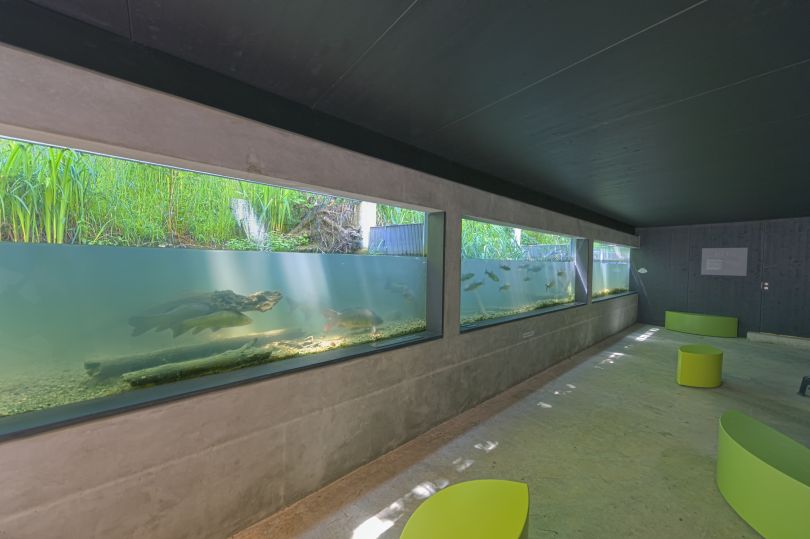
Once you said that nature doesn't forgive. Perhaps some people have illusions that the number of animals will increase over time. But in reality, it's not the case.
The thing is, due to global warming, we cannot predict which genes will be necessary for survival. That's why it's crucial to have a collection of all possible genes and hope that one of them will be the right one. Genetic diversity is vital for the survival of a population. When pollution or war devastates a river, leaving only a few species of fish, the genetic diversity becomes very low. In such cases, programs can be implemented to crossbreed fish from different rivers, increasing genetic diversity and ensuring the best possible outcome. These programs require significant efforts and should be implemented as quickly as possible.
People in Europe may think that Ukraine is very far away, and its environmental problems caused by the war are also very distant, that Ukrainians have their own environmental issues and the consequences of the war, but here in Europe, we care about our nature…
Although some political parties may believe that Switzerland should not interfere in the situation in Ukraine, such a stance is mistaken. The consequences of what is happening in Ukraine can impact other countries. The Chornobyl disaster is an example of this, as the radiation effects were felt far beyond Ukraine's borders. Therefore, it is important to think globally and help other countries improve their environmental condition.
Instead of building walls, we should contribute to creating better conditions at their homes. We can assist by providing knowledge so that governments can improve the well-being of their citizens, and potential refugees can stay in their homes. While some people may still want to come here for economic reasons, there are ways in which we can help them. Sharing our knowledge is the best thing we can do.
One could say that Switzerland is a kind of ecological laboratory of the world.
Indeed, we have certain skills and knowledge that we can share with others. We are ready to cooperate and help people in their countries improve the environment. Here's how it should happen. Personally, I enjoy living in Switzerland, and I consider it the best country, just as other people may have an attachment to their own country. Therefore, we should help them with our knowledge and skills.
Thank you. The world is indeed becoming increasingly global, but also very small and interconnected in times of crisis. And when everyone is affected by global warming, food issues, and so on, we must support one another and stop thinking only within our own borders.
The situation in Ukraine, I believe, has pushed us towards a different way of thinking, and many minds will propose new solutions to shared problems, including environmental ones.
